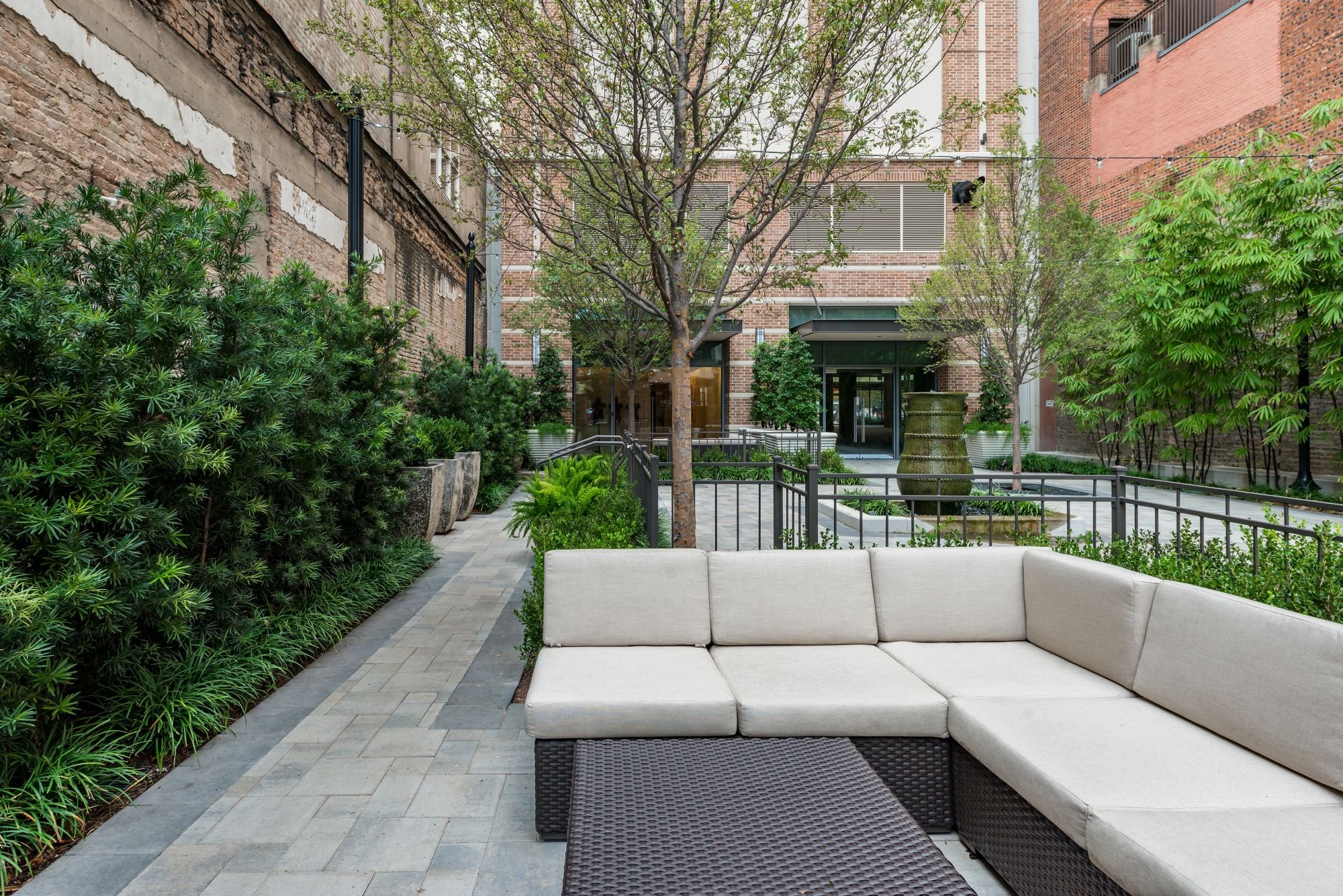Walkable Communities & Signature Greenspace
The Urban Fabric Master Weavers
Our cities have developed around an infrastructure of waterways, roadways, tunnels, and byways, so it could be said that a city’s natural and man-made infrastructure is the warp, or longitudinal thread, of its urban fabric. What, then, would be the fabric’s weft - that part which weaves in and out to create the texture and character of the fabric? A city’s character is influenced greatly by its architecture. Architects are challenged to design a beautiful, safe, functional, and resilient component of the public realm. The mass of a building provides shelter and stability, but too often is made to be a monolithic barrier between form and function. In the hands of an experienced architect, the form provides the opportunity to enhance the interaction between the street and the building’s ground floor. Welldesigned, this street scene becomes a compelling experience for residents, workers and visitors, as at the entrance to Aris Market Square, on the cover.
Linear Parks
Urban linear parks are hardly a new thing. However, in relation to the cycle of urban development, it is perhaps quite remarkable that, worldwide, more than two dozen major new urban linear parks projects have been created in the last 20 years. In a class of international projects from London to Seoul, one of the most successful is Houston’s Bayou Greenways project.
The 160-acre Buffalo Bayou Park, originally created in 1929 is now a vital thread in the fabric which connects downtown to the Galleria and other vibrant, surrounding neighborhoods. The city plans to further develop this system to provide 20 miles of trails along this major waterway. Until recently, the missing element to creating a vibrant, sustainable downtown community was the residential component. High rise living now brings people to the streets to visit restaurants and to shop at local stores outside of the workday. Walkable community is contingent upon the residents; their activities, their eyes, to make the street exciting, interesting and safe every day, not just during community and public events. Linear Parks, like Buffalo Bayou, bind communities and create attractive opportunities for urban living.
Caydon's Drewery Place - An Inviting Public Realm
Creating a community that works and keeps working for everyone means that an enormous number of willing participants, both private and public, must take hold of a vision and have the will and capital to see it through. A sustainable urban community must be people-focused rather than catering to automobiles. Walkable districts have clearly defined shopping places and provide comfortable, safe, and purposeful activity. Compelling architecture is a vital component of a more pleasant and engaging stroll. A lively mix of urban living has developed around Houston’s entertainment venues, theaters and parks, and is evident at Caydon’s 2850 Fannin in Midtown.
The Catalyst Houston - Tree-Lined Streets
Houston has been counted among Tree City, USA communities for 30 years. One of the signature goals of Houston’s long range planning is to create grand, tree-lined avenues. For many years, Houston’s downtown tunnel system has sheltered workers from searing summer heat. New development is inviting them back onto the streets to enjoy an al fresco dining experience under the shade of a tree in the midday sun. With projects like Catalyst Houston, below, creating more street activity, a canopy of trees provides shade and offers a sense of permanence, and tranquility. Beyond shade, trees improve air quality by conversion of greenhouse gas emissions to valuable oxygen, and help mitigate storm water runoff. Tree-lined streets also increase safety by creating a physical barrier between pedestrians and automobiles, as seen along Texas Avenue at Catalyst Houston.
Aris Market Square - Pocket Parks: Secret Gardens for Residents
A pocket park is typically accessible to the public and frequently created on a small, irregular piece of land. In the case of Hines’ Aris Market Square, right, the developer had to stitch together seven adjacent parcels of land in order to create the development site. An awkward space then became an intimate urban garden. It reinforces pedestrian activity by affording access to public transportation for residents, and echoes the building’s extensive array of street access to restaurants and clubs in the Downtown Houston neighborhood. During the months of temperate weather, pocket parks provide a place for enjoying a regeneration of urban wildlife and they add great quality of life to the community.
About the Author
Scott Ziegler, AIA
As Founding Principal of the firm and leader of the Urban Architecture Studio, Scott’s design experience reflects his belief that inspirational architecture enriches people’s lives, uplifts the human spirit, and provides a constant vision of excellence. As Residential Senior Practice Area Leader, Scott plays an active role in shaping the urban landscape through the firm’s built works and his published writing in professional journals on the subjects of sustainable urban growth strategies and high-density mixed-use developments.








